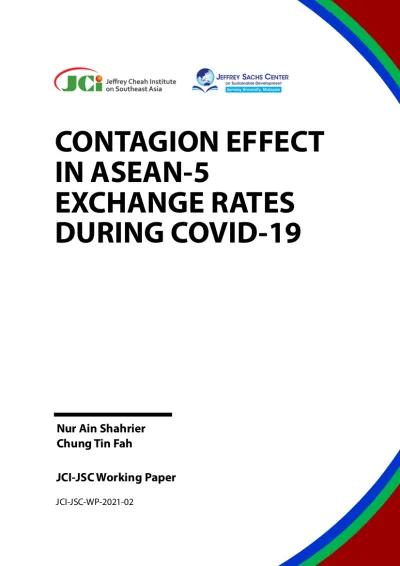JCI-JSC-WP-2021-02: Contagion Effect in ASEAN-5 Exchange Rates during COVID-19
Publication date: October 2021 | Length of paper: 26 pages | ISBN: TBC
The aim of this study is to examine the short and long run contagion effects in ASEAN-5 exchange rates during Covid-19 period using daily exchange rates from June 2019 to December 2020. We adopt VECM within the structural VAR framework and higher time-frequency wavelet analysis to identify the pure contagion that happens in the short run and fundamentals-based contagion in the long run. The VECM findings show that there exist a long run exchange rates equilibrium during Covid-19 and should there be any disequilibrium, daily rate of adjustments in the Indonesian rupiah, Malaysia ringgit and Singapore dollar are 6.58%, 1.47% and 2.45% respectively. The wavelet power spectrum provides evidence of short run pure contagion that leads to fundamentals-based contagion for Indonesia, Malaysia and Singapore. The Philippines only experience short run contagion while Thailand experiences more of a long run contagion. Furthermore, the wavelet coherence shows Indonesia rupiah that would react first during this pandemic while the Philippines peso is the last one to react. These findings are important as it gives insights into the nature of contagion among ASEAN-5 exchange rates due to global shock of Covid-19 and the need for timely intervention to prevent the short run contagion turning into the long run contagion.
Keywords: currency linkages, exchange rates, contagion, Covid-19, ASEAN, wavelet analysis, vector error correction model
JEL Classification: F41, F30 and C10.
Author(s)
Chung Tin Fah
HELP University
ELM Graduate School
The JCI-JSC Working Paper series is published to disseminate preliminary research findings and stimulate intellectual discourse on wide-ranging public policy issues, ranging from security to sustainability. The views expressed herein are those of the author(s) and do not necessarily reflect the views of the Jeffrey Cheah Institute on Southeast Asia and the Jeffrey Sachs Center on Sustainable Development.




